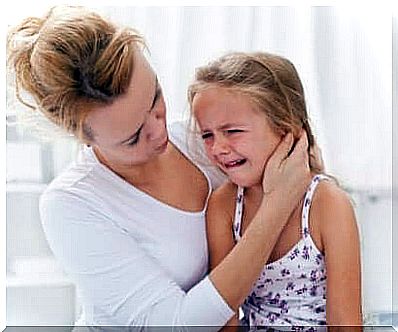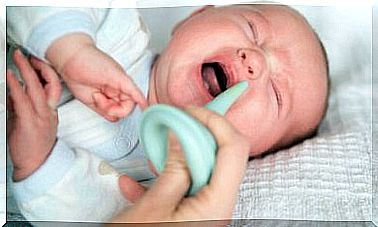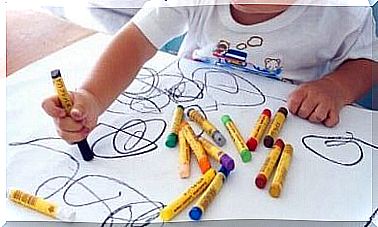Irritability In Children: What To Do?

Most children go through a phase in which they are irritable, in a bad mood or even quick-tempered and you cannot please them. They then do not know themselves why they are constantly in a bad mood and cannot express this feeling properly. Today, learn more about childhood irritability and how to deal with it.
Anger attacks, crying, or chronically bad moods can occur at various stages in the child’s development. It seems that the child is bothered by anyone and anything, especially irritated by those family members with whom he spends most of the time.
Depending on age, development and the family, social and personal environment , this state of mind can show itself and express itself differently for different reasons. It is therefore important that parents are prepared and react correctly when this situation presents itself.

Causes of irritability in children
The reasons for irritability in children are often difficult to find out, especially when they cannot express themselves why they are in a bad mood or angry. It’s complicated with babies because they can’t speak, but children often don’t know why they are feeling bad either.
There may be physical or psychological reasons that can only occur for a short time or over a longer period of time.
The most common reasons for irritability in children include:
- Illness: The child may be irritable if they have a headache, stomach ache, sore throat, or have problems with their hearing or teeth. In this case, the best thing to do is to take your little darling to the pediatrician to have him examined and, if necessary, treated.
- Psychological factors: Family conflicts or traumatic situations at school or other social problems, depression, grief or attention disorders are often reasons for irritability in children. In some cases, it could also be a sign of autism when there is little social communication and the child prefers solitude. In this case, too, you should have your child examined by a doctor.
- Unhealthy habits: Bad or wrong nutrition (e.g. consumption of caffeine), lack of sleep or overstimulation of the senses can also have a negative effect on children. You can become irritable as a result.
- Developmental Change: Many babies and young children are in a bad mood when they have teeth because it causes pain. Growing pains can also be uncomfortable during childhood; or hormonal changes during puberty. All of these can cause increased irritability in children.
- Sudden changes in habits or routines: If adults are already having trouble adapting to change, you can imagine that children will find it much harder to do so . You can react by changing your behavior.
How can you control irritability in children?
When a child is in a bad mood, it must always be taken into account that it is because something is wrong. Nobody is irritable for no reason or because they just feel like it. If we could choose, we would enjoy every moment of the day, especially with children.
Instead of playing judges, it is better to find out what exactly is going on with the child. Talk to him and try to find a solution with him.
Consider the following advice:
- First, rule out the presence of symptoms of an illness that could be causing the bad mood.
- Try to cheer up your child! Go to the park with him, do sports with him or play his favorite game with your little one.
- Talk to your child so they can express their feelings. You are his confidante and you have to help him find solutions to his problems.

- Try to distract your child. Dancing, playing an instrument, taking a walk, or other distractions can all cause your child to get rid of their anxiety and nervousness and reduce stress.
- Stay calm even if your child is uncomfortable. If you react to your irritable child with anger yourself, you will not get a positive result. You should stay calm and think rationally about how to face the conflict. Set an example because your child has a tendency to imitate you.
- You shouldn’t bribe your child with “rewards”. If you give your child what they want each time they have a tantrum, they’ll feel validated and will continue to use this strategy. Do the opposite: Limit some favorite activities if your child becomes irritable or angry for no reason.
Finally, we would like to mention that children react spontaneously to their surroundings. When they have worry, pain, or problems, they often express it through irritability. Therefore, you need to watch your child closely to know when the reactions are “normal” and when a solution is needed. When in doubt, be sure to get help from an expert.









